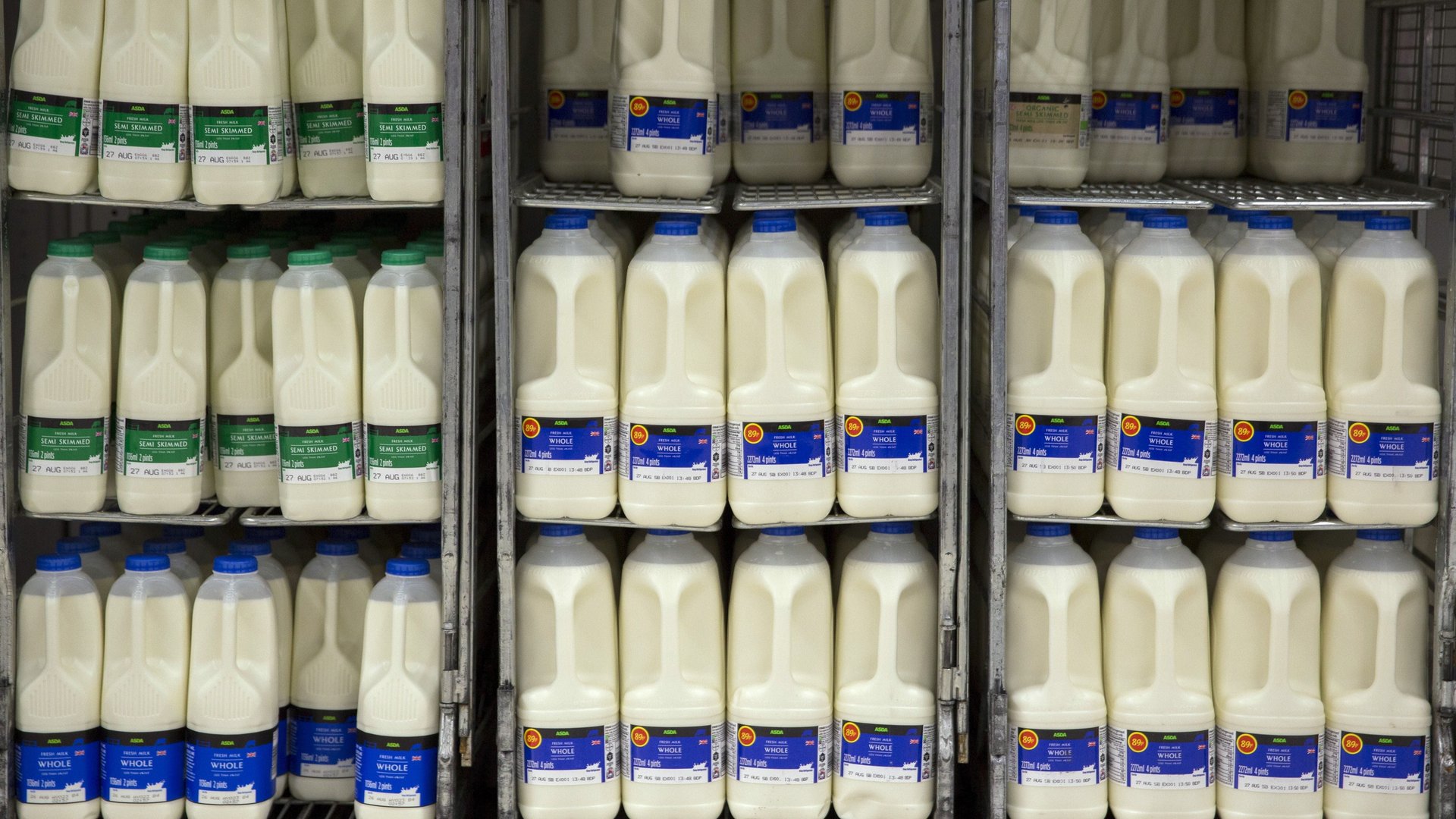Is low-fat milk and cheese better than full-fat? Experts are divided
There are always two options on the shelf when we reach for the milk, cheese or yoghurt: normal or “lite.” Less fat is better, right? But what about the goodness found in dairy—is it all there in the reduced fat version?


There are always two options on the shelf when we reach for the milk, cheese or yoghurt: normal or “lite.” Less fat is better, right? But what about the goodness found in dairy—is it all there in the reduced fat version?
We asked five experts from various fields if light dairy products are better for our health.
Three out of five experts said yes

Here are their detailed responses:
Caryl Nowson, Nutritionist
Yes
Switching from full fat dairy products to low fat reduces energy intake, thereby preventing weight gain as well as reducing saturated fat intake. Consumption of saturated fat raises cholesterol levels in the blood, which increases the risk of heart disease. So reducing saturated fat intake can assist in reducing the risk of heart disease and stroke.
Malcolm Riley, Epidemiologist
Yes
Light dairy products are great for people wanting to lower their dietary fat intake—they have most of the nutritional benefits of dairy food with 25 to 100% less fat than the regular dairy food equivalent. The Australian Dietary Guidelines recommend milk, yogurt, and cheese (or alternatives), mostly reduced fat.
For dairy products, ‘light or lite’ most often refers to fat and by Australian food labeling law, to use these terms, a food needs to have at least 25% lower content of a specific component than a reference food. It’s important to note while light dairy foods may be higher in some other nutrients such as sugar (lower in fat doesn’t necessarily mean lower in energy), the foods may still be high in fat (like light cream). It always pays to read the nutrition panel and the ingredients list carefully.
Nicholas Fuller, Obesity Researcher
Yes
Both full fat and low fat dairy have the same benefits for heart health and the most important thing is that a person includes dairy products in their diet, or suitable dairy-free alternatives that are calcium-enriched, such as soy. But, the focus should be on inclusion of milk and yogurt, and not cheese.
Low fat dairy has the same nutrition—protein and calcium—but typically half the calories. Until we know for sure the effect of full fat versus low fat dairy on our weight and waistlines, people should stick with skim or low fat products as part of their daily eating plan.
Evangeline Mantzioris, Food Scientist
No
This is a complex question as there are two factors to consider. The first is the increased kilojoules in regular dairy versus low fat dairy. The variation in fat levels between regular dairy products and low fat dairy products can be quite substantial, which can have a big effect on weight management. The second factor is the impact of the type of fat on health. The fats in dairy are typically saturated fats.
A recent study which followed people for 22 years found no negative link between heart health and dairy consumption. However, one fatty acid found in dairy was linked to a decreased risk of death from heart disease and stroke. Another study found no difference between the consumption of high fat and low fat dairy with rates of death and heart disease. So currently the evidence suggests light dairy makes no difference in terms of risk of heart disease and early death, but for those seeking to manage their weight, the difference in kilojoules may have a significant impact on their success.
Robyn Delbridge, Dietician
No
When considering milk, cheese, and yogurt, light dairy foods are not necessarily better than full fat dairy foods. The Australian Dietary Guidelines recommend we choose mostly reduced fat, citing kilojoules and saturated fat as the main reasons.
Evidence supports consuming milk, cheese, and yogurt as important and convenient sources of calcium, protein, and other vitamins and minerals. However, evidence published in the last ten years is questioning the prevailing low-fat message. A 21-country study found higher dairy consumption was associated with lower risk of death and heart disease, particularly stroke.
Bodies of evidence are suggesting dairy foods, irrespective of fat content, have minimal risk of the potential harmful effects of bad cholesterol, high blood pressure, insulin resistance, and risk of cancer death. Fermented dairy such as yogurt, kefir, and cheese may be beneficial for heart health. The choice of full fat or reduced fat should be made based on your whole diet pattern, rather than an historical aversion to full fat dairy.
Disclosures: Caryl Nowson has received consultancy funds from Meat and Livestock Australia, Dairy Australia DRDC (Dairy Research Development Corp) and and Nestle. Malcolm Riley worked for Dairy Australia from 2006-2010. In his current role, he has worked on projects commissioned by the dairy industry and companies manufacturing dairy foods.
This article is republished from The Conversation under a Creative Commons license. Read the original article.